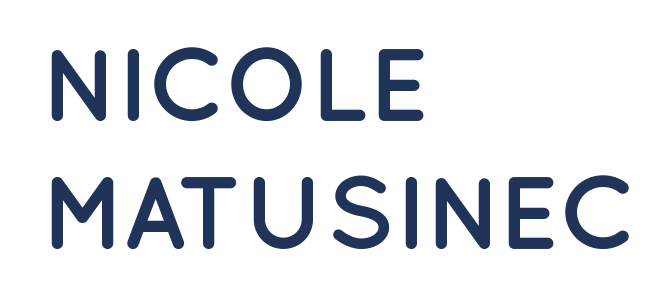After responding to the job offer or apprenticeship contract, you have successfully passed the first step of CV selection. AND some need to prepare for the admission interview. All you have to do is prepare for the famous interview. While some are very comfortable talking about themselves, it is for others – shy, introverted, hypersensitive – a real ordeal. How to present for an interview? What is the important information to convey during an interview? How to properly describe his career? How to talk about yourself while showing your motivation? Discover these tips to help you approach the next interview with confidence.
State your marital status to come for an interview
Introducing yourself is first of all about explaining who you are. The very first step of the interview is therefore a formality: it is simply a question of stating your identity. First name, last name, age, current occupation: even if your interlocutor is supposed to know who he is receiving, it is always good to remind him at the beginning of the interview – especially if he receives several candidates during the day.
Present your background during a recruitment
The second stage of presentation during an interview is to talk about your background: studies, first positions, professional choices, expatriations, career development. The difficulty here is to manage not to recite the lines of your CV, but rather to make an effective pitch. Since the company or school has selected your application, it means that it has already validated your professional background and your educational background. At this point, therefore, she is trying to find out a little more.
Shed light on its own professional career
The easiest way is to take a chronological approach. The goal: to publicize your educational background, your professional background, and legitimize your application for the position or for this school. It’s up to you to bring your presentation to life by explaining your choices, your successes and your failures.
What was your professional plan when you decided to continue your studies after your Master 2? Why have you integrated a small family business in the region rather than a large Parisian consulting firm? What lessons have you learned from each of your professional experiences?
Do not hesitate to highlight your qualities by citing concrete examples. For example: “Being agile and pragmatic, I immediately knew how to adjust the management of my team and my business objectives at the start of the Covid-19 crisis”.
Fill in your profile
- Where does the candidate come from?
- What did he do?
- What does he want to do?
These are the 3 questions we try to answer in an interview. And the exercise also consists of checking boxes to verify that you are properly sized for this integration.
So when you present your background, try to highlight the experiences, qualities or skills that are important for the job you are applying for. Reassure about potential doubts. For example, if you have a hole in your CV, do not hesitate to explain the project you carried out during your 2 years of inactivity: association involvement, support for a loved one who is ill, travel around the world. Whatever the cause of your career break, it can be valued and should be readable.
How to talk about your future professional in interview?
If you are invited for an interview, it is because you want to give new impetus to your professional and school career. Thus, the challenge of the interview will be to know how to subtly approach your professional future, by mixing your wishes with the opportunities offered by the job or school.
How to present your professional project?
The goal is to prove to the recruiter the consistency between who you are today and what you aspire to be tomorrow. In your presentation, you will therefore need to be able to play this intellectual ping-pong game between your current skills and those required for the future. To do this, find out as much as possible about the job description and / or the school.
For example: after having held the position of recruitment officer, I was promoted to HR manager. In addition to recruiting, this position covered payroll, training and management of a team of 5 people. After 4 years in this role, I developed my legal knowledge and trained on CSR issues. This is why I aspire today to improve my skills in a HRD function or training in the sector.
What is evaluated in the presentation of your professional future
“Is this candidate the best for this job and in this company or school?” “: You usually have one hour of interview to prove to the other person that the answer is” Yes “.
If the consistency of your CV – background, experiences, hard skills – is a priori validated, it remains to be convinced of your motivation.
By selecting the experiences and skills that you present, you prove that you have understood what is at stake. In fact, there is no need to detail your past as a recreation center animator – unless you have learned a key skill for the job. On the other hand, mentioning your areas of interest is important because it allows you to get to know you better. And in particular to assess whether your values are in line with the corporate culture or that of the school, and if you are compatible with the rest of the team or the other students.
4 tips for presenting yourself well during the interview
Prepare your interview in advance
To be as comfortable as possible and to avoid the academic side. Take notes on the key points to cover during the interview. Objective: to master your speech, not to get lost in the details and to avoid oversights. Also remember to cite a few keywords, taking inspiration from the important concepts mentioned in the job description or the coveted master’s degree.
Practice oral before D-Day
To gain a natural feel and assess your timing, repeat your interview at home. In particular, learn to adopt the right tone: relaxed without being familiar, serious without being boring, without being pedantic.
Interact with the interlocutor
You are not there to recite a poem, but to interact with a person (s). And the more you master your speech, the more you can be attentive to the signs sent by it (s). Frowning, nodding, looking away, smiling: this non-verbal communication gives you a lot of information on how to adjust your speech. For example, slow down or accelerate the pace, go into less detail or on the contrary explain a subject. By using the DISC method for example, you can also guess the communication mode that will be best suited to the profile of your interlocutor.
Practice the art of storytelling
To allow the people in front of you to follow your thought process, organize your ideas in a funnel: from the most general to the most specific. Practice the art of storytelling by incorporating details, examples and anecdotes that will personalize your presentation and set you apart from other candidates. This will also allow you to legitimize your words and to dispel any suspicions in the face of too declarative speech.
There is no official repertoire or classification of soft or hard skills. Here is a list of the transferable and transversal skills that seem to us to be the most strategic today. The purpose of this list is both to provide a benchmark, a tool to help identify the skills that are already part of its range of assets, and those to be developed.
The 46 strategic soft skills
Adaptability
Be flexible, open to new challenges, show optimism and resilience in the face of change.
Associated: curiosity, resilience, optimism, daring, initiative, agility.
Interpersonal skills
Having good contact with others, being able to communicate easily and naturally, inspiring confidence and knowing how to surround yourself.
Associated: self-control, sociability, friendliness, courtesy, recognition, respect.
Facilitation
Lead a discussion or debate between a group of people ensuring an equitable distribution of speech and that everyone can be heard and that the exchange is fruitful, while maintaining a respectful atmosphere.
Learning to learn
Ability to manage one’s own learning, proactively and throughout life: understand the mechanisms of learning and motivation, understand one’s own mode of functioning, question what one believes to know, have meaning sufficient organization and confidence in one’s own abilities to train effectively and maintain employability.
Associated: self-confidence, self-awareness, curiosity, concentration, rigor, self-motivation, autonomy, humility.
Assertiveness
Express your feelings and needs confidently, confidently and calmly so that you can be heard, assert yourself, know how to say no, assert your rights and defend your interests, always with respect for others.
Daring
Dare to think outside the box and experiment with new ways of doing things, new ideas, daring to assert yourself and express innovative ideas.
Autonomy
Be able to organize and set their own goals, take initiatives and make decisions independently.
Self motivation
Stay engaged, be able to work efficiently in complete autonomy, by properly managing your energy.
Ability to delegate
Have a sense of responsibility and be able to assign in a relevant and justified way the right tasks to the right people, while maintaining the cohesion and cooperation of the team.
Associated: pedagogy and transmission.
Ability to motivate
Generate and maintain engagement by giving meaning, understanding and activating the right levers for motivation, recognition and rewards.
Communication
Knowing how to listen and transmit information or convey a message in a clear and powerful way, adapted to his audience, by adopting an adapted verbal communication.
Associated: verbal and written communication, storytelling, humor, listening, presentation, rhetoric.
Digital literacy
To be able to navigate the digital world to seek, find, evaluate, filter, sort, understand and synthesize information, with sufficient discernment to judge the reliability of the source. Ability to create and share content appropriately.
Concentration
Protect and maintain your attention without being distracted.
Self-confidence
Believe in yourself, in your ability to mobilize the necessary resources to undertake, succeed and bounce back in the event of a setback. Associated: confidence in others and in the future, self-awareness, assertiveness.
Self-consciousness
Take a step back on yourself, know and accept your strengths and weaknesses, how it works, its hindrances and drivers, listen and understand your own emotions.
Cooperation
Manage to work effectively with all types of profiles by adapting with ease to different personalities, codes and modes of operation, showing oneself as someone reliable and trustworthy, contributing to collective intelligence, being able to find and take his place within a group, knowing how to ask and share the necessary information, adapt his communication to his interlocutor.
Associated: networking, empathy, conflict management, team spirit, communication, sense of responsibility, interpersonal skills, ability to delegate, empathy, ability to motivate, persuasion, animation, listening.
Creativity
Generate new ideas by showing curiosity, openness, daring and listening to your intuition.
Curiosity
Have an open mind, eager for learning and discovery, being able to find the answers to your questions yourself, to explore a subject that arouses interest, to seek to know others.
Associated: intellectual curiosity, openness.
Personal development
To be able to question oneself and want to progress, to accept criticism and feedback, to make each experience an opportunity to learn, regularly seek to improve.
Associated: self-confidence, self-awareness, resilience, assertiveness, admitting criticism, humility, perseverance, curiosity.
Listen
Show a genuine interest in others, listen carefully and ask the right questions.
Empathy
Ability to put yourself in the other’s shoes to understand what they feel and what their needs are.
Equanimity
Be even-tempered, able to maintain composure under all circumstances.
Critical mind
Take a step back from the information received, the practices in place, assess their relevance, to be able to observe and analyze a situation with discernment, to conduct logical and insightful reasoning.
Associated: assertiveness, curiosity, daring, judgment.
Entrepreneurial spirit
Be proactive, daring, and bring forward new proposals to engage in new projects, lead them head-on by autonomously managing all aspects (budget, deadlines, indicators, resources etc. and to propose new solutions.
Associated: Patience, insight, spirit of initiative, daring, sense of responsibility, curiosity, creativity.
Team spirit
Ability to interact, to cooperate to advance towards a common goal, to build bonds and a network, to build strong interpersonal relationships to facilitate coordination and to adapt and take advantage of different personalities.
Initiative
Be proactive in solving problems, be proactive, and have the courage and confidence to dare to take risks and follow through with your ideas, to be able to carry out projects independently.
Professional Ethics
Demonstrate integrity, assume responsibility, respect the rules; give your best at work and behave like someone who is reliable and committed.
Associated: punctuality, loyalty, honesty, righteousness, rigor, self-motivation, autonomy, sense of responsibility.
Service excellence
Placing the customer at the heart of their concerns, understanding their needs, operating methods, consumption habits in order to anticipate their needs and serve them as best as possible.
Stress management
Dealing with pressure in a healthy way, managing to regulate and channel your stress by being able to recognize it and adopt the right attitude to regain your calm and your means.
Time management and productivity
Efficiency in the organization, ability to prioritize, set goals and achieve them, plan and manage their schedule independently while managing emergencies, delegated if necessary.
Associated: planning, organization, professional conscience, entrepreneurial spirit, stress management, autonomy.
Humility
To be able to put your ego aside, to admit your mistakes, to recognize your weaknesses, to admit when you do not know, to be open and to listen to what others have to teach us, whatever their position, put them forward when it is deserved, know how to ask for help, be accessible.
Emotional intelligence
Being able to recognize, welcome, listen to and decode emotions in yourself and in others and use them as levers to adjust your behavior in response.
Associated: benevolence, empathy, compassion, interpersonal skills, humility, listening, self-awareness.
Leadership
A soft skill with particularly broad outlines which encompasses, among other things, the ability to motivate, inspire, and lead a group towards a common vision, to make decisions in the collective interest, to create cohesion, to exercise judgment and to take decisions. decisions.
Associated: team spirit, strategic planning, pedagogy, ability to motivate, ability to delegate, conflict management, persuasion, diplomacy, management, crisis management, networking.
Negociation
To be able to understand the needs, hindrances, motivations and the levers of your counterpart, to evaluate the interest of a proposal and to call on your capacities of argumentation and persuasion to arrive at a solution which satisfies all parties.
Networking
Identify key people with whom to build strategic links, have easy contact to approach them and build relationships, be helpful, useful.
Optimism
Be enthusiastic, optimistic, don’t be defeatist but try to see things on the bright side, focus on opportunities, keep a willful attitude, be resilient in the face of setbacks and focus on what matters ‘there is better in others.
Associated: dynamism, enthusiasm, optimism, curiosity, resilience, self-motivation.
Perseverance
Follow through to the end of your projects and reach goals by managing to keep sufficient motivation, properly managing your energy and overcoming obstacles.
Persuasion
Ability to defend his ideas and opinions, to convince, to influence and to generate adhesion to achieve his ends, with tact and diplomacy.
Presentation
Be able to share results, ideas, your own or those of your team, in a clear, engaging, and concise manner.
Decision making
Knowing how to ask the right questions, take into account key information and use critical thinking skills to assess the various options and the risks they entail, arbitrate, and make the best possible choice with confidence.
Resilience
Bounce back with agility and optimism after a setback and stay motivated.
Problem solving
To be able to identify a problem, to analyze it to understand its source and measure its complexity, to face it in a sensible and thoughtful way, to actively solve it by collecting key information, by calling on one’s creativity, and by identifying the right resources to find relevant and appropriate solutions, and by putting in place an effective action plan.
Associated: quick-wittedness, critical thinking, creativity, daring, curiosity, rigor, decision-making, spirit of initiative.
Conflict resolution
To act as a mediator to facilitate dialogue, allow a constructive exchange between the parties during which each will have the opportunity to express their needs and be listened to, and which can lead to a compromise, a satisfactory solution.
Rhetoric
To be able to express oneself with ease and eloquence, and to make an impression, to convince and to debate.
Rigor
Show discipline in one’s work, be meticulous, applied, thoughtful, coherent, constant and professional, analyze information with precision and objectivity.
Sense of responsibility
Honor our commitments, recognize our mistakes and take the initiative to repair them and learn from them, to face the problems that lie before us.
Hard skills
These are the technical skills, the know-how. It is the mastery of a particular area:
Proficiency in software (design, word processing, invoicing, databases, etc.)
Mastery of a technical or computer language (medical, web, programming language, law, etc.)
Mastery of a language (English, Spanish, German … or more rare)
The mastery of a task (writing, event management, community management …)
Mastery of a field (mathematics, physics, accounting, chemistry, economics, etc.)
Control of a tool / machine
Mastery of a technique / process
Mastery of Project Management
Mastery of Marketing and Communication
Mastery of social networks
In addition, hard skills can be transposable or specific. The skills that can be transferred can be used from one job to another. They are particularly useful in the event of a career change.
For example: having an excellent level of written expression is useful for a job as a journalist, but also as a teacher or clerk …
Conversely, specific skills are only useful for a single trade or industry.
For example: Being an expert in using weather tracking software will be pointless in any other area.











0 Comments